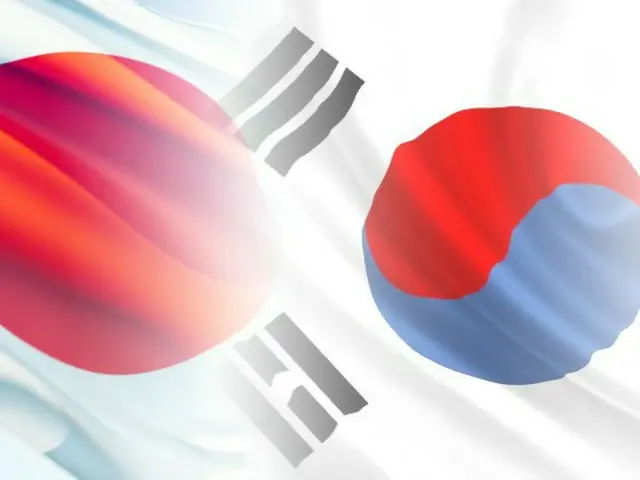The Yun Seok-yeol administration this month appointed Kim Hyun-suk as the new director of the Independence Hall of Japan, but opposition parties such as the Gwangbok Association, which is made up of activists involved in the Korean independence movement from Japan and their descendants and surviving relatives, and the party, have also raised objections to the appointment.
The party opposed Kim, calling him a far-right figure with a pro-Japanese view of history. They demanded that the appointment of the museum director be revoked, but the government did not respond, so the Kwangbok Association and opposition lawmakers held a press conference on Liberation Day on the 15th of this month (the anniversary of Japan's plantation of Koreans).
It was an unusual move for the party to skip the government-sponsored commemorative ceremony on the anniversary of the country's liberation from civilian rule. However, the party has been trying to raise voter nationalism by labeling the Yoon administration as "pro-Japan."
The Democratic Party of Korea's latest legislative push comes at a time when criticism of "pro-Japan" sentiment is on the rise following Kim's appointment as the new director, and is intended to encourage "pro-Japan friends."
It can be said that this is an attempt to use the "School" as a tool for political strife and to cause division among the people. Even the Hankyoreh, which is known for its critical tone toward the Yoon administration, has expressed its opposition to this legislation, stating that it "will undermine freedom of expression and academic research."
"There are voices of criticism that this is unconstitutional legislation that restricts the right to vote," the Democratic Party of Korea's policy committee chairman Jin Sung-jun said at a floor meeting on the 20th, "The Democratic Party cannot sit idly by and watch these traitorous actions.
"We will promote legislation to protect the country and the land," and "we will enact legislation to prevent people who praise or encourage pro-Japanese or anti-national actions from entering public institutions, and we will also denies the sovereignty of Dokdo (the Korean name for Takeshima)."
"We will enact legislation to punish acts that deny the sovereignty of Liancourt Rocks," Chin said. "In particular, denying Liancourt Rocks' sovereignty would be a serious damage to the national interests of the Republic of Korea and could be considered a crime of treason.
He also claimed that the party has been "bashing the pro-Japanese" side of the Yoon administration, and the person at the forefront of this is Chairman Lee Jae-myung. Lee is from Gyeonggi-do, near Seoul.
During his term as governor, he promoted the "Pro-Japanese Remnants Liquidation Project." He liquidated the pro-Japanese and Japanese imperialist remnants in educational settings in Gyeonggi Province. If he runs for president in 2022, he will take a hard-line stance against Japan.
Although he lost to President Yoon by a narrow margin, it is true that these remarks garnered a certain amount of support from voters. On Liberation Day on the 15th of this month, he posted on his social media account, "The Yoon administration is the worst in history.
He reiterated his criticism, saying, "This is a step backwards in progress," and emphasized, "The Democratic Party of Korea will do everything in its power to stop this administration's historic, humiliating diplomacy and pro-Japanese steps."
Lee was re-elected as party leader on the 18th of this month, and is expected to step up his criticism of the Yoon administration.
In the midst of this, the party suddenly announced its intention to promote legislation to ban those who advocate pro-Japanese activities from holding public office. This was triggered by the government's decision to ban the Independence Hall of Korea from holding public office.
The appointment of Kim Hyun-suk as the new director of the museum is a step forward for the Gwangbok Society and the party. Kim has previously said, "The founding of the Korean nation began with the establishment of the Provisional Government in 1919 and was completed with the establishment of the Republic of Korea Government in 1948.
Kim's argument is that August 15th is the current "National Day of the Rising Sun" and that the year 1948, when the Korean government was established, is more important than the year 1945, when Korea was liberated from Japanese colonial rule.
The proposal is that the day should be celebrated as "National Foundation Day" rather than "Revival Day," and the Gwangbok Association and other groups are opposed to it, claiming that it undermines the significance of the independence movement.
The bill is currently being prepared at the party's policy committee level, and will be passed by the party after going through a general assembly of lawmakers.
The party plans to push ahead with the bill as a policy measure. However, there are concerns within the party that the bill could "suppress the freedom of thought of civil servants." According to the JoongAng Ilbo, one lawmaker said, "To what extent are we concerned about this bill?"
Who gets to decide what is a pro-Japanese act and what is an act that goes against the national identity? Who gets to set the standards? It will be difficult to actually get the bill enacted."
According to the Hankyoreh, experts who do not agree with the Yoon administration's view of history have also expressed concern about the move to push for legislation.
Professor Han Sang-hee of the Korean Academy of Letters told the newspaper, "The issue of historical distortion is a matter of the spirit of the times and the spirit of the Constitution, so it should be overcome through social and academic discussion and should not be regulated by law."
This is not an issue," he said.
2024/08/23 16:17 KST
Copyrights(C)wowkorea.jp 5

